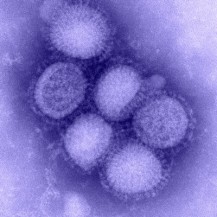 If you suspect your pet has gotten sick from it’s food or you think there’s something wrong with the food, be sure to file a report with the FDA. The FDA has instructions on the information to include and where to file the report. It’s okay if you don’t have all the info. listed, just include as much as you can.
If you suspect your pet has gotten sick from it’s food or you think there’s something wrong with the food, be sure to file a report with the FDA. The FDA has instructions on the information to include and where to file the report. It’s okay if you don’t have all the info. listed, just include as much as you can.
If you transfer your pet food to bins or other containers, it’s important that you keep the packaging until all the food is eaten so you can provide information on the variety, point of manufacture, lot numbers, best-by dates, etc. I haven’t been good about this at all.
When you file a report, you’ll deal with your state’s Complaint Coordinator. Check the FDA list for each State’s contact information.
I think it’s also a good idea:
- to file a report with the manufacturer and let them know you’ve filed one with the FDA
- to get your veterinarian to file a report
- to be diligent about reporting concerns given how long it can take the FDA to respond
